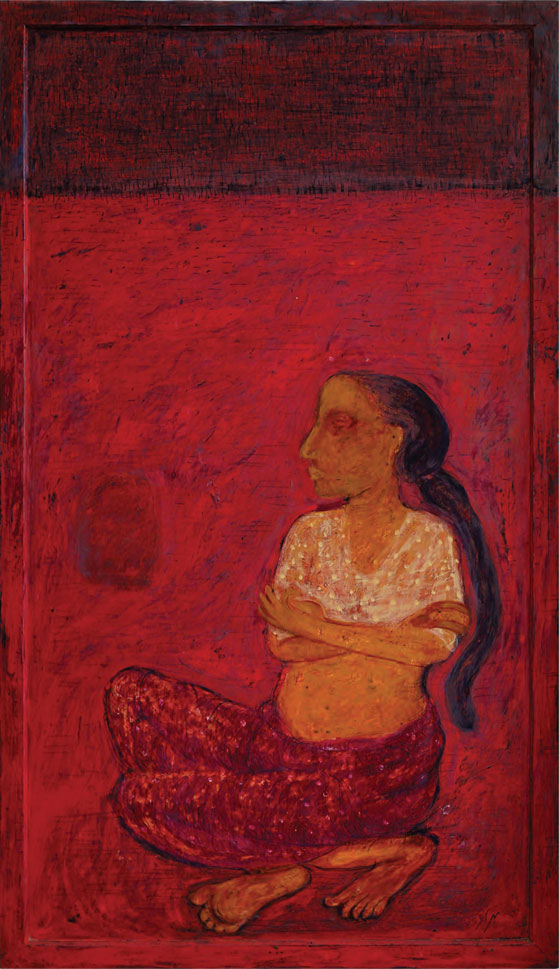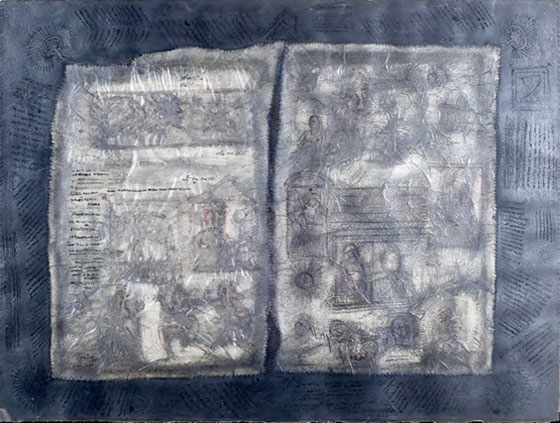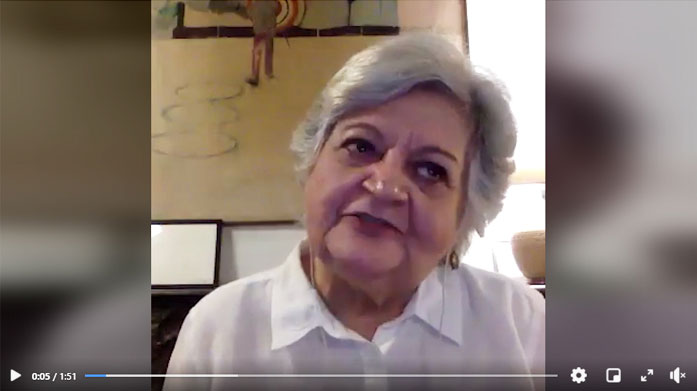A beautiful despair—the art and life of Meher Afroz
The first comprehensive book on one of Pakistan’s most significant artists.
Edited by Niilofur Farrukh

What’s inside the book

This unprecedented book combines works and commentary that span Meher Afroz’s five-decade career. Conceptualised and edited by Niilofur Farrukh, it offers a fresh and visually rich look at an artist who has responded to culturally transformative events, from humanitarian injustices, displacement to economic and environmental change. 15 writers, including art critics, curators, art historians, artists, a filmmaker, anthropologist and poet, take you deeper into the mind, heart and practice of Meher Afroz.
Only a handful of Pakistani artists have so successfully managed to reconnect the contemporary with the spirit of a civilisation and continue to bring into discussion the tensions and transformations of half a century.
– Niilofur Farrukh
Contributors
Aasim Akhtar
Aquila Ismail
Niilofur Farrukh
Savita Apte
Aisha Gazdar
Atteqa Ali
Romila Kareem
Shazia Zuberi
Amra Ali
Fehmida Riaz
Salima Hashmi
Waheeda Baloch
Anoli Perera
Laila Rehman
Salman Asif
Zehra Hamdani Miza
About the editor
Niilofur Farrukh is a Karachi based art interventionist whose seminal initiatives have expanded the space for art publication, curation and public art in Pakistan. Primarily motivated by issues of decolonization and the interactivity between political ideology and visual narrative, her writing has focused on excavating interdisciplinary connections that are often misplaced in Pakistan’s tangled cultural and political matrix. The goal of expanding opportunities and spaces for public exhibition – of creating room for social dialogue around art – defined her curatorial practice and now lies at the heart of her commitment to the Karachi Biennale, which she co-founded.
Her first book, Pioneering Perspectives (Feroszons, Pvt. Ltd., 1996), showcased the visual resistance of three influential women artists against Zia-ul-Haq’s anti-women policies. Niilofur is one of the editors of ‘Pakistan’s Radioactive Decade: An Informal Cultural History of the 1970s’ (Oxford University Press, Pakistan, 2019) that revisits one of Pakistan’s most difficult decades through the era’s cultural production. Niilofur has contributed to numerous catalogs and publications, including Intersections of Contemporary Art, Anthropology and Art History in South Asia: Decoding Visual Worlds, published by Palgrave Macmillan in 2019; the ‘Visual Arts’ section for Encyclopedia Pakistan by Oxford University Press (Pakistan); Fifty Years of Art in Pakistan, a commemorative book for Berkeley Communications (UK); and Bashir Mirza: Acrylic Series, 1989-1994, published in 1996.
In 2005, Niilofur co-founded NuktaArt, a magazine on Pakistani contemporary art, serving as editor for the 10 years it remained in print. Her mainstream media columns include Critical Space (Gallery, Daily Dawn) and Art Speak (Newsline), Herald (Pakistan), Jamini (Bangladesh), Art Tomorrow (Iran), Art India (India) and Artetc (India), among other published art writings.
She regularly presents papers on Contemporary Art from Pakistan at national and international seminars.
Niilofur has served as Pakistan’s Commissioner at The Asian Art Biennale (2006), Tashkent Art Biennale (2009) and Khatmandu International Art Festival (2011). She has been on the Advisory Committee of Colombo Art Biennale, State Bank Museum and the National Art Gallery in Pakistan.
She has served as Vice President on the Board of the International Art Critics Association (AICA) for two terms. Niilofur is one of the co-founders of the non-profit art platform ASNA: to reclaim traditional craft practices and resurrect their relevance within the practices of contemporary Pakistani artists (www.asnaart.com). She is currently the Karachi Biennale Trust’s Managing Trustee and the Karachi Biennale platform’s CEO (www.karachibiennale.org.pk).
